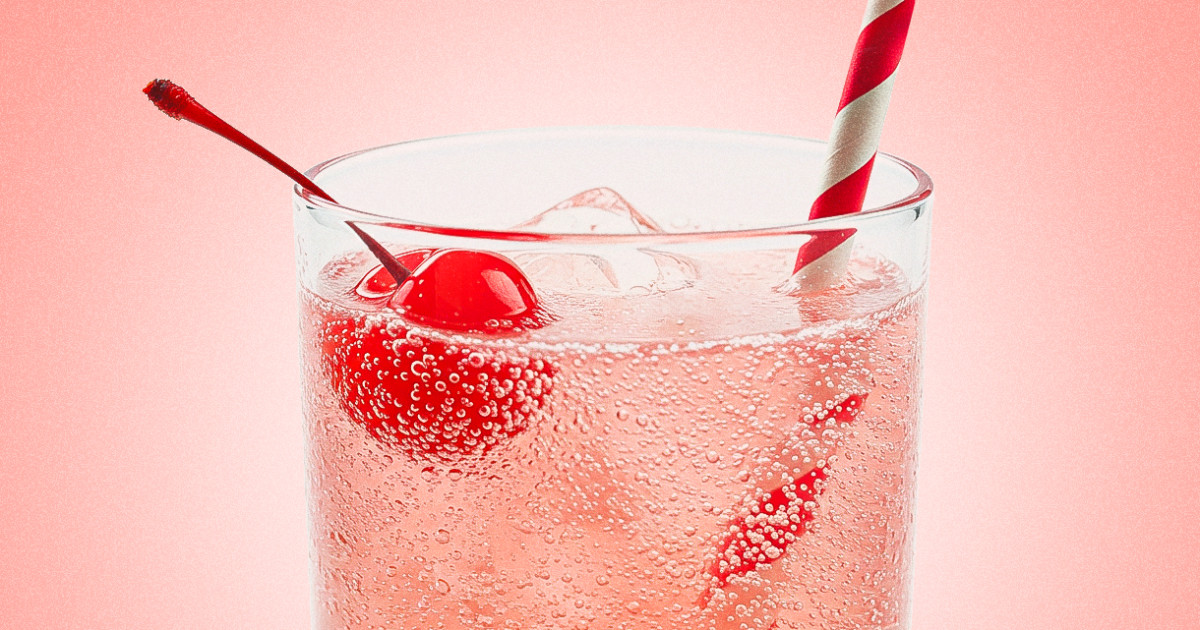Kids either love or hate the fizzling, foaming, bubbling sensation of drinking sparkling water.
Also called “carbonated water” or “seltzer,” sparkling water has become more popular than ever. If kids watch adults guzzle it all day long, they might want to get in on the action. But is it OK for kids to drink it too?
TODAY.com chatted with a pediatric dentist and a registered dietitian to answer parent questions that tend to bubble up around this topic.
For the purposes of this article, we are referring to sparkling water with no calories and 0% juice.
How Young Is Too Young for Sparkling Water?
“There isn’t really a ‘hard’ age, but I wouldn’t give seltzer to babies or toddlers,” says Dr. Ashley Lerman, a pediatric dentist and founder of Firstgrin, an oral care companion app.
“Their teeth and feeding habits are still developing, and they don’t need flavored or bubbly drinks,” she says of children under 3. “If you are offering it, ideally give some plain water after to help neutralize the mouth to avoid damage to the teeth.”
Kristin Kirkpatrick, former lead dietitian at Cleveland Clinic and founder of KAK Consulting, says, “If I were advising a parent in my practice, I’d suggest sticking with milk and water as long as possible.”
Is “Junior” Sparkling Water the Same Thing as the Adult Brands?
Kirkpatrick and Lerman agree that the content of some kid-focused seltzers is identical to “adult” versions — the package is just smaller.
“If it’s carbonated water, the acid effect is the same,” says Lerman. “The marketing may be different — and very cute! — but the dental impact isn’t.”
Does Sparkling Water Damage Kids’ Teeth?
Kirkpatrick points out that there haven’t been many studies on the affect of sparkling water on kids’ teeth, but Lerman says carbonic acid that makes the bubbles “can weaken enamel” over time.
“That’s true for both baby teeth and new adult teeth, which are still more vulnerable than mature adult enamel,” she continues. “It’s not as damaging as juice or soda, but it’s not completely neutral either.”
If you drink sparkling water, Lerman recommends that you do so in one sitting rather than sipping it all day. Drinking plain water afterward can help minimize it’s affect on your teeth.
Some Flavored Sparkling Water Has More Juice Than Others. Does the Percentage of Juice Matter?
Kirkpatrick notes that sparkling water with juice is still likely to be healthier than soda pop.
However, the addition of juice can begin to affect kids’ dental health.
“The higher the juice percentage, the more sugar, and sugar feeds cavity-causing bacteria,” says Lerman. “Plain seltzer is better than one with juice.”
When It Comes to Dental Health, Which Is Better: Sparkling Water or Fruit Juice?
Kirkpatrick, who has two kids, recommends popping open a sparkling water rather than pouring juice.
“Seltzer offers the advantage of being lower in sugar, which helps limit the chronic disease risks that could come later in life associated with high sugar diets,” she says.
Lerman, whose two kids are still too young to try sparkling water, says that she would recommend plain seltzer over juice.
She explains, “Juice has both sugar and acid, so it’s harder on teeth. I’d still make water the main drink and save seltzer as an occasional option.”

